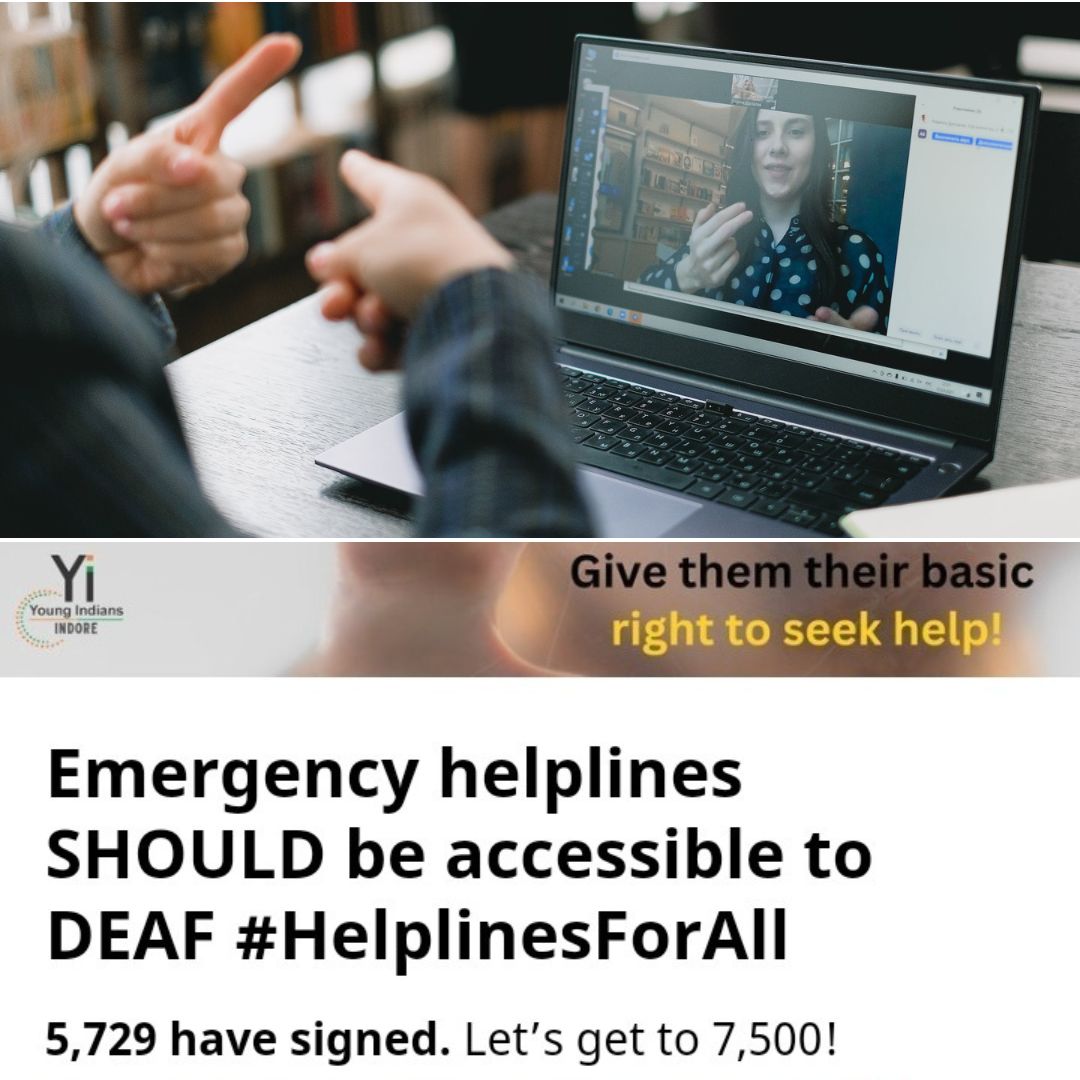
Image Credits: Change.Org and Pexels
Hear Us Out! This Woman Started Petition To Make Helplines Accessible For The Hearing Impaired
Writer: Laxmi Mohan Kumar
She is an aspiring journalist in the process of learning and unlearning many things. Always up for discussions on everything from popular culture to politics.
India, 26 Nov 2022 9:04 AM GMT
Editor : Shiva Chaudhary |
A post-graduate in Journalism and Mass Communication with relevant skills, specialising in content editing & writing. I believe in the precise dissemination of information based on facts to the public.
Creatives : Laxmi Mohan Kumar
She is an aspiring journalist in the process of learning and unlearning many things. Always up for discussions on everything from popular culture to politics.
The helplines people reach out to at times of distress and danger is not accessible to the hearing-impaired community. Who then reaches out to help them? Taking this concern to the public, Naina has garnered the support of over 6,500 social media users.
Despite 63 million people in the country reportedly being affected with hearing disabilities, there is no provision made on a governmental level to make helplines accessible to them. The emergency helplines of 100, 101, 102, 1098, and so on are of no use to them as the people on the other end do not speak the same language as them.
Addressing this concern, Naina Navlani, chair of the accessibility vertical at Young Indians Indore, started a petition with Change.org. Through the petition, she requests the Government of India to make helplines accessible to all through video call services with sign language interpreters.
Indian Sign Language Continues To Be A Foreign Concept
As per the estimates presented by the World Health Organisation (WHO), about 63 million people in India suffer from Significant Auditory Impairment, which places an estimated impairment prevalence among 6.3 per cent of the Indian population. Even though the country has fared far and well with technological and infrastructural resources, the needs and resources available for the Deaf or Hard-of-Hearing (DHH) community are minimal. Alongside this, despite sign language having evolved within the country for centuries, the Indian Government issued sign language to be codified in a dictionary format only by 2017.
Many people and activists from the DHH community have been pushing the Government to bring a reform that would categorise Indian Sign Language as the country's twenty-third official language. They believe that this would have had a significant impact on the crisis they face every day. One such crisis is reaching out to emergency services.
In situations of potential danger or distress, people have numbers they can dial up for their relief and rescue. This is not the case for the hearing impaired, who communicate through sign language. If they were to dial up the emergency services, their calls would be hung up under the idea that it is a prank.
Deciding to break this silence, Naina started a petition with change.org that advocated for helplines that are accessible to all. An accessible helpline does not take much as all it requires is a video call service and sign language interpreters. Similar services have been recognised and offered in several developed countries with the simplest technologies and some empathy for the DHH community.
6,508 Signatures And Counting
During the pandemic, the National Institute of Speech and Hearing (NISH) collaborated with a State Disaster Management Authority to set up a 24×7 Covid-19 helpline for DHH people. The facility was established to answer their concerns about the pandemic and offer counselling services if they feel anxious or stressed. Sign language interpreters attended to them through WhatsApp video calls to the helpline number.
This was, however, a project that was exclusively carried out during the pandemic and did not expand beyond that. There's a dire need for a nationwide general helpline to help the DHH community. In the petition, Naina says that she shudders every time when she thinks "how a deaf child will reach out for help if they were to report an assault or call an ambulance. What if there is a fire? None of our helplines will be of use to them."
Taking this concern to the public, she has garnered the support of over 6,500 social media users. She also had the opportunity of talking about it to the Minister of Women and Child Development, Smriti Irani, and Member of Parliament, Shankar Lalwani. Hopefully, with a few more signatures and many more voices, their petition will be heard by the responsible authorities.
 All section
All section














